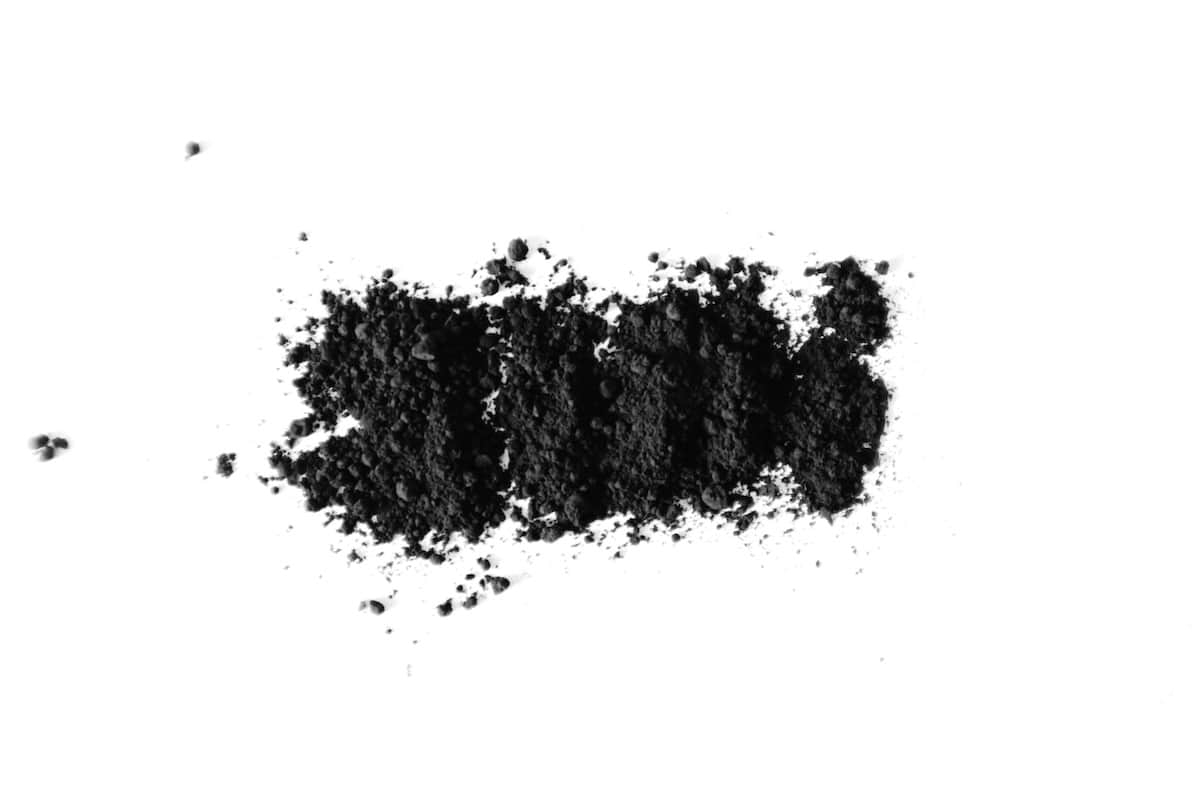Last update: November 6, 2025
8 minute read
What are Isoflavones?
Uncover the mystery of isoflavones. Dive into their health benefits, connection with nutritional supplements, and how they can boost your wellness journey.

By Stephanie Wright, RN, BSN
Edited by Dr. Jacquie Leone, NMD, HN

Can you imagine a simple bean potentially holding the key to alleviating symptoms of menopause, osteoporosis, or even heart disease? It might sound like something from a sci-fi movie, but the tiny compounds found in these beans, known as isoflavones, are currently the subject of numerous health studies. Are these plant-based compounds the heroes of the natural health world?
Key takeaways
- Isoflavones are a plant compound found primarily in soy and soy-based products
- They've been linked to many health benefits, from cardiovascular health to menopausal symptom relief
- While supplements can provide an isoflavone boost, they're best used as part of a balanced diet and healthy lifestyle
What are isoflavones?
What are isoflavones? They're plant-based compounds found almost exclusively in beans, like soybeans, that mimic the action of the hormone estrogen. Isoflavones may be useful in various health conditions, including menopause symptoms or potentially preventing osteoporosis in postmenopausal women.

What are the hormonal effects of isoflavones?
Often called phytoestrogens, isoflavones are plant-based compounds that mimic estrogen's structure and function. Much like an understudy waiting in the wings, these compounds are ready to take center stage if your body's estrogen levels dip, stepping into the role and binding with estrogen receptors.
In studies involving isoflavone supplements for menopausal symptoms, benefits have been shown, like:
- Providing support for bone loss
- Decreasing irritability and depression
- Reducing hot flashes
- Helping insomnia
- Balancing mood and libido
Sounds like magic, right? It seems isoflavones have the potential to unlock relief from some menopausal symptoms.
But before you celebrate, it's important to note that more research is needed. According to The Pharmaceutical Journal, although isoflavones are being marketed as an effective product for natural hormone replacement therapy (HRT), you shouldn't get ahead of yourself. Using isoflavones for long-term HRT is not wise until further research can vouch for their safety and efficacy.
Are isoflavones in red clover helpful?
Red clover, rich in isoflavones, has been claimed to reduce hot flashes and anxiety during menopause. However, as with any good detective story, we need solid evidence, and the lack of sufficient clinical research leaves us in suspense.
What are the medical uses for isoflavones?
Isoflavones are like the Swiss Army knives of the plant world. They're believed to aid in a wide array of health conditions. Let's break it down.
Can isoflavones help with certain conditions?
The research is a mixed bag. In some cases, isoflavones seem to have a positive effect:
- Type 2 diabetes: Eating soy protein or fermented soy may reduce blood sugar in those with diabetes.
- High cholesterol: Isoflavones from soy reduce LDL, the "bad" cholesterol.
- High blood pressure: Soy may lower blood pressure slightly.
- Irritable bowel syndrome (IBS): Soy isoflavones may improve symptoms like abdominal pain.
- Osteoporosis: Soy protein and isoflavone supplements were both found to increase bone density.
- PMS: Isoflavones have been shown to improve breast tenderness, cramping, and bloating associated with PMS.
But in some other cases, the evidence doesn't seem strong enough to back the claims for treatment of conditions like Alzheimer's disease, asthma, heart disease, and several others. This suggests that the health benefits of isoflavones might be limited to certain conditions only.
I must emphasize the importance of having a balanced diet filled with a variety of nutrients. While isoflavones certainly have their benefits, they should be part of a larger nutritional strategy.
VitaRx Tip
Nutritional supplements, including isoflavones, can play a vital role in supporting your overall health when used in conjunction with a balanced diet and lifestyle. However, remember to consult with your healthcare provider before starting any new supplements.
What's the final verdict on Isoflavones?
Isoflavones are intricate and multi-layered, offering a variety of health benefits but also harboring potential risks. More research is certainly needed to fully understand their potential.
So, while it's fine to incorporate foods rich in isoflavones into your diet, it's wise to tread lightly when it comes to using them for medicinal purposes until more comprehensive research is available.
How do you include isoflavones in your diet?
If you've just started humming "Be Our Guest" from Disney's "Beauty and the Beast," you're on the right track. Incorporating isoflavones into your diet is as fun as a dining room full of singing dishes!
What foods are high in isoflavones?
To add more isoflavones to your diet, consider including the following foods:
- Soybeans and soy products: tofu, tempeh, and edamame
- Legumes: chickpeas, peanuts, and lentils
- Fruits: apples and berries
- Vegetables: broccoli and sprouts
- Grains: barley and oats
But wait! Before you dash off to the supermarket to stock up, let's talk about how much isoflavones you should intake.
What's the recommended intake of isoflavones?
The tricky part about isoflavones is that there's no standard recommended daily intake. However, 40-160 mg/day intake is generally considered safe and potentially beneficial.
VitaRx Tip
Always remember, balance is key! If you're unsure about your isoflavones intake, consult a dietitian or healthcare professional.
What are the potential risks of isoflavones?
Although isoflavones can be beneficial, they can also cause adverse effects, particularly when consumed in large amounts. Some potential side effects might include:
- Digestive upset
- Allergic reactions
- Hormonal imbalances
Like a suspenseful Netflix series, the relationship between isoflavones and health can take many unexpected twists and turns.
Health made easy: your go-to resource for essential vitamins and supplements

Dos and don'ts of consuming isoflavones
Do’s
Consult with a healthcare provider before starting any new supplements.
Use isoflavones as part of a balanced diet.
Be mindful of the amount of isoflavones you're consuming.
Don’ts
Don't use isoflavones as a substitute for medication.
Don't rely solely on isoflavones for health benefits.
Don't consume excessively high amounts of isoflavones without professional advice.
Nutritional supplement consumption statistics
Let's delve into some fascinating data that brings to light the world of nutritional supplements. Here's some data drawn from studies by the National Institutes of Health, illuminating how dietary supplement use fluctuates among different age groups.
- Adults: 58.5%
- Females: 38.3%
- Males: 31.3%
- Adolescents: 34.8%
Caption: Percentage of population in different age groups using dietary supplements, data sourced from National Institutes of Health
This lays out the compelling reality with age and females more than men use dietary supplements. It seems that health-conscious decisions, like adding dietary supplements to your regimen, gain traction as you age and vary based on sex.
Frequently asked questions (FAQ)
Here are some of the most frequently asked questions about isoflavones.
Final thoughts
Well, that's the "soy" of the matter! Whether you're a bean believer or a tofu enthusiast, it's clear that isoflavones hold some interesting potential. So, don't be a stranger, and until next time, keep your spirits high and your nutrition higher!
Sources and references
- Isoflavones - PMC
- Utilization of Isoflavones in Soybeans for Women with Menopausal Syndrome: An Overview
- Red clover extract for alleviating hot flushes in postmenopausal women: A meta-analysis - ScienceDirect
- Soy Isoflavones and Breast Cancer Risk: A Meta-analysis | In Vivo
- Effects of Soy Isoflavones on Glycemic Control and Lipid Profile in Patients with Type 2 Diabetes: A Systematic Review and Meta-Analysis of Randomized Controlled Trials
- Full article: The effects of isolated soy protein, isolated soy isoflavones and soy protein containing isoflavones on serum lipids in postmenopausal women: A systematic review and meta-analysis
- The Vascular Effects of Isolated Isoflavones—A Focus on the Determinants of Blood Pressure Regulation
- (Poly)phenols in Inflammatory Bowel Disease and Irritable Bowel Syndrome: A Review
- Effects of isoflavone interventions on bone mineral density in postmenopausal women: a systematic review and meta-analysis of randomized controlled trials | Osteoporosis International
- Role of Soy Isoflavones in Treatment Premenstrual Tension Syndrome Symptoms
- Usual intake of dietary isoflavone and its major food sources in Koreans: Korea National Health and Nutrition Examination Survey 2016-2018 data - PMC
- (PDF) Health Effects and Safety of Soy and Isoflavones
- National Health Statistics Reports, Number 183, April 18, 2023
Author

Stephanie Wright
Stephanie brings over 13 years of diverse nursing experience to the table, having honed her expertise in critical care, mental health, and utilization management. Her journey as a registered nurse across these various healthcare sectors underscores her adaptability and deep commitment to patient care.
Fact checker

Dr. Jacquie Leone
Dr. Leone holds a BA in Psychology, a Doctorate in Naturopathic Medicine, and board certification in holistic nutrition. In addition to practicing medicine, Dr. Leone has developed and currently teaches science and nutrition courses for a nationally accredited institution. She specializes in chronic illness, gastrointestinal dysregulation, inflammatory conditions, and mental health. Her unique approach combines the wisdom of Eastern medicine with the technology and science of Western medicine, offering an integrative approach heavily focused on functional medicine.
At VitaRx, we're not just passionate about our work — we take immense pride in it. Our dedicated team of writers diligently follows strict editorial standards, ensuring that every piece of content we publish is accurate, current, and highly valuable. We don't just strive for quality; we aim for excellence.
Related posts
While you're at it, here are some other relevant articles you might be interested in.

Get your personalized vitamin recommendations in less than
5 minutes.
Get your personalized vitamin recommendations in less than
5 minutes.






